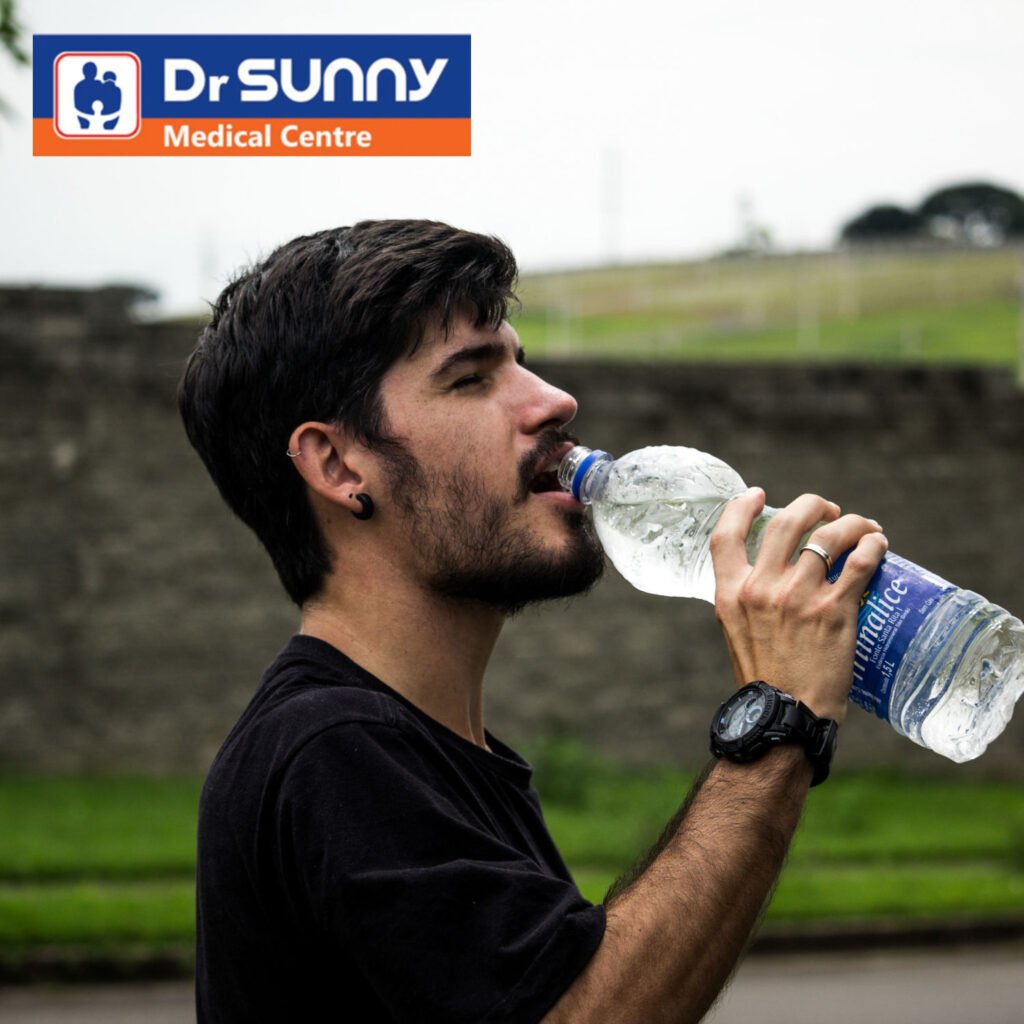

Dehydration in Summer
The human body is roughly 75 percent water. Without this water, it cannot survive. Water is found inside cells, within blood vessels, and between cells. Dehydration in Summer occurs when more water and fluids leave the body.
What you should know about dehydration ?
Water is constantly lost throughout the day as we breathe, sweat, urinate, and defecate, we can replenish the water in our body by drinking fluids. The body can also move water around to areas where it is needed most if dehydration begins to occur.
The causes of dehydration include thirst, darker urine, and decreased urine production. Dehydration can occur without thirst. This is why it is important to drink more water when ill, or during hotter weather. Losing body water without replacing it results in your blood becoming more concentrated. This causes your heart rate to increase to maintain your blood pressure, and it triggers your kidneys to retain water (hence, decreased urination).
Symptoms of Dehydration
- Dry mouth
- Weakness in muscles
- Headache
- Dizziness
- Decreased urine output
- Sunken eyes
Causes of Dehydration
- Excessive alcohol intake
- Excessive caffeine intake
- Lack of water intake
Symptoms for Infants
- Limp body posture
- Very soft spot on top of the head
- Fussiness
- Extreme sleepiness
Few steps to prevent from dehydration
- Drink optimum amounts of water daily (8-10 glasses)
- Keep yourself hydrated, especially when sick.
- Increase your fluid consumption during hot and humid weather to replenish the water lost by sweating.
- Rest in cool places, and avoid exercising if you feel dehydrated.
- If you are suffering from a disease such as gastroenteritis, avoid consuming coffee, soda, or any beverage with high sugar content when dehydrated.
- Caffeine might stimulate diarrhea, and soda may cause as gastroenteritis irritation.
- Eat mild foods during dehydrated conditions.
- Drink sports drinks if you feel dehydrated after exhausting physical activity.
When you visit a Dr Sunny Medical Center at Bellandur for dehydration symptoms. They will perform a physical exam, during which blood and urine samples will be taken and tested. These tests will help your doctor determine the severity of your condition and whether an underlying medical problem, such as diabetes or any medical conditions is the cause.
If necessary, your doctor can treat dehydration by giving you intravenous (IV) fluids. This may take place in a hospital or outpatient care facility. While your body is rehydrating, you will be monitored for low blood pressure, a rapid heart rate, or abnormal kidney function. For more details on dehydration and how to keep you hydrated contact Dr Sunny Medical Center at Sarjapur Road.
